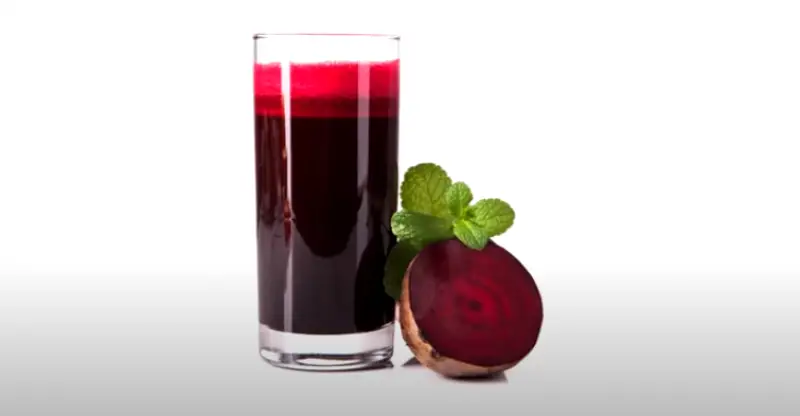How Much Beet Juice Per Day
Do You Love to Have Beetroot Juice Everyday?
Many people find themselves confused about this topic since consuming it in excess could be detrimental to your health. You have the option to make beetroot juice on your own or purchase it, but if you’re new to it, it’s wise to begin with small quantities and incrementally up the dosage. This is because it acts as a potent detoxifying substance.
It is advised to consume 0.06 mmol per liter per kilogram of body weight. As a result, if you weigh 68 kg, you should consume 4.08 mmol of nitrates each day. Some argue that drinking two glasses of beetroot juice every day will have no effect on you.
Those who have been drinking beetroot juice on a daily basis for a long time will have no problems with the juice. Someone else may claim to have become queasy or vomited after drinking beetroot juice. These are usually folks who are new to juicing or who have an adverse reaction to it. These kinds of differences indicate that the amount of beetroot juice you ingest may alter if you have any pre-existing health concerns.
Maximum Dosage
There are currently no recognized dosing guidelines for beetroot juice.
A 2014 study found that consuming one 250-ml glass of beetroot juice each day may reduce blood pressure. The juice had no major negative effects, however, the subjects did notice a change in the color of their urine.
The effectiveness of beetroot juice to reduce blood pressure is dependent on nitrate content, which varies greatly amongst beetroot juices, according to the authors. To reduce blood pressure in healthy persons, the authors propose a nitrate concentration of 4 millimoles per liter (mmol).
Adverse Consequences
A person with high blood pressure should avoid consuming beet juice on a daily basis.
In most circumstances, eating beets or drinking beetroot juice is harmless.
Because of the natural colors of beets, drinking beetroot juice on a daily basis might influence the color of urine and feces. People may detect pink or purple urine, known as beeturia, as well as pink or purple feces. These hue shifts are very transitory and should not be the reason for alarm.
How to Prepare Beet Juice
A juicer, blender, or food processor can be used to prepare beetroot juice at home.
How To Prepare The Beets
- Trim the tops off the beets before thoroughly cleaning them. To get more nutrients, keep the beetroot peel on.
- Cut the beets into tiny cubes.
To juice, the beets, follow these steps
- Set up a juicer with a basin or pitcher to capture any leftover material.
- Feed the beetroot chunks one at a time into the juicer.
- Pour the beetroot juice into a glass and serve immediately or chill in the refrigerator.
How To Blend The Beets
- Put the beetroot chunks in the blender and add a splash of water to soften them up.
- Blend until completely smooth.
- Using a cheesecloth or fine-mesh strainer, remove big pieces from the liquid.
- Remove the pulp and strain the beetroot juice into a glass. Refrigerate it before serving, or serve it immediately.
Beetroot juice contains nitrates, which have an effect on blood pressure. Before including beets or beetroot juice into their diet, anybody with low blood pressure or who is presently on blood pressure medication should consult with a healthcare expert. Beets are high in oxalates, which can produce kidney stones in persons who are predisposed to this problem.
Benefits Of Beetroot Juice
Beets have been known for decades as a liver-protective meal, and while they are hardly the newest kid on the superfood block, accumulating evidence shows why you should take another look at this root vegetable in juiced form.
Many of our patients have noted that juicing beets gives them additional energy throughout the day. According to research, this might be related to the juice’s capacity to enhance blood flow. Beetroot juice has been demonstrated to improve exercise response by balancing oxygen utilization and enhancing stamina.
Beetroot juice is an excellent source of antioxidants and naturally occurring nitrates. Nitrates are substances that increase blood flow throughout the body, including the brain, heart, and muscles. These natural nitrates boost a chemical called nitric oxide in the blood arteries, which helps open up the capillaries and permits more oxygen flow while also lowering blood pressure.
What are the side effects of drinking beet juice every day?
Although beet juice is safe for most people, it may cause the following side effects.
Red or Pinkish Urine
One of the side effects of a beetroot juice on daily basis is the red or pinkish urine. However it is not a medical issue so do not worry at all. Just stop eating beetroot or having juice every day and your urine color will return to normal.
Low Blood Pressure
Beetroot juice can be helpful in lowing blood pressure, therefore if you have low blood pressure drinking beet juice may increase your symptoms.
Increased Risk of Kidney Stones
Beet juice is high in compounds called oxalates. These naturally occurring compounds in urine can increase the risk of kidney stones if you have a tendency to develop them.
Beetroot Allergey
Though allergy to beetroot is rare, some people have reported develop in asthma red or itchy eyes, and stuffy nose when eating beets or inhaling the vapors of cooked beet
To Wrap it All Up
Beetroots are a nutritious supplement to almost any diet. People can benefit from beetroots’ health advantages by eating them raw or cooked, or by drinking beetroot juice. Beet juice has numerous useful elements that boiling might destroy.
Beetroot juice is mostly preferred by people who love to lose weight and keep themselves fit. However, it does have some disadavantages as well. Apart from giving you many health benefits, it can be harmful if you are having it every day in a large quantiy. Your urine color might get the effect as it becomes red or pinkish but it is not an issue once you stop taking beetroot it will turn to normal.








